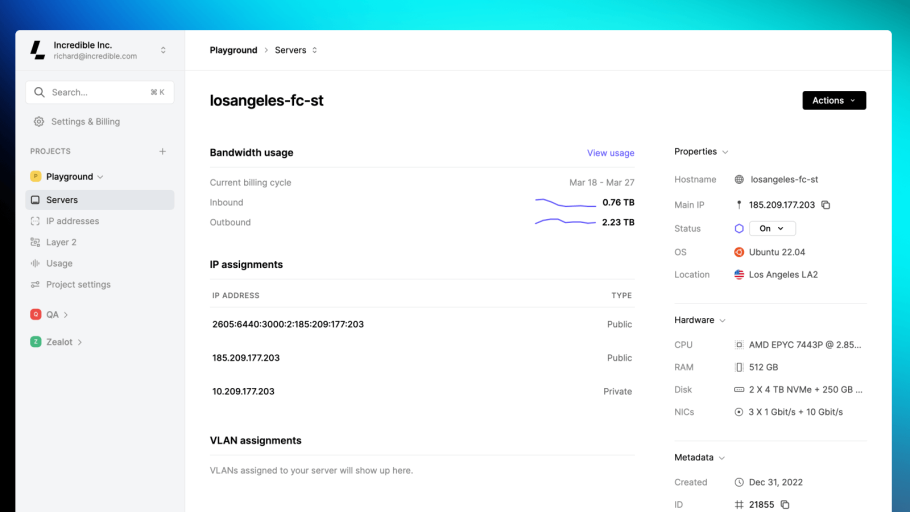Changelog
March 2023
Deploy servers with your own custom images via iPXE script. With Custom Images you can create your own images and quickly boot into them. That's a lot more power and flexibility over your infrastructure.
Custom images can be a powerful tool for improving your server environment's performance, security, and customization.

ImprovementServer page redesign
The server page has been redesigned for simplicity. No more tabs — everything is now on the same page.
Quickly view bandwidth usage and consumption trend from the new Bandwidth usage overview section.
Collapse items on the sidebar to focus on a specific section. The app remembers items you've collapsed, so the page always looks the way you left it.
Features like Remote Access, Rescue, Reinstall and Delete are now under the Actions button.
Copy commonly used values for API requests like server ID and Label with a single click.
Fancy new icons throughout.

Accelerate are instances based on Metal powered by NVIDIA's H100 GPU. You can start training or inferencing on models with pre-configured deep learning tools like TensorFlow, Pytorch, and Jupyter.
With H100, you can train your models up to 9x faster than with the previous generation A100.

February 2023
Latitude.sh Terraform Provider: Shipped version 0.2.1 with support for deploying servers with SSH and user data and fixed an issue that prevented project settings from being updated.
Updated API URL: The default API URL is now api.latitude.sh. The old URL will continue working indefinitely.
Go client library: Released version 0.1.3.
Dashboard: Improved several aspects of the dashboard to provide better interactions with dropdowns, selects, and more.
API: Added the ipmi_status to GET /servers responses to retrieve the health status of a server's IPMI connection.
User permissions: Collaborators can now update the deploy config of a server.
Bandwidth alerts: Improved notifications for bandwidth alerts to avoid sending too many emails.
January 2023
You can now deploy bare metal servers in as little as 15 seconds. Instant deployments are available in all locations for select operating systems.
